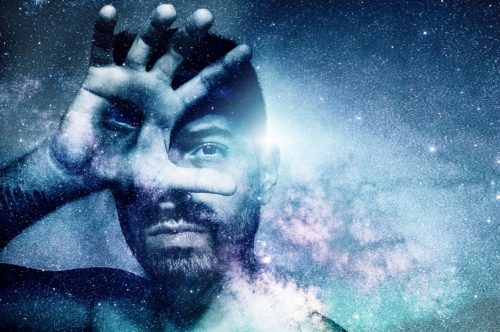
Today is Christmas and many people in the Christianized world will celebrate either the birth of Jesus, the arrival of Santa Clause or a combination of the two. In both cases, there is likely gifting.

For the secular, Christmas is presents, trees, and jingle bells which I believe all people, can find joy. For the religious, Christmas is the birth of a savior, a messianic prophecy come true. It’s complicated, and maybe even smothering for us over here in the Solstice/Yule club who are not, ‘in that trad’ to use popular Pagan colloquialism.
Jesus gets a lot of attention, and his mom, Mary. Personally, I’ve always been keen on the Three Wise Men- and as Pagans, Polytheists, and Heathens- you might be too.
In the Bible, Matthew Chapter 2,1-12, Three Wise Men see a star and travel to Bethlehem. They have one line,“Where is the child who has been born king of the Jews?” They give some gifts. There is nothing else. Not even proof they are men. For all, we know they are three women. Conjecture could have them be Babylonians, maybe Arabs. Bible scholarship informs the ten tribes of Israel were carried off into exile; any tribe could do. We do know they see the star and are compelled to take an unbelievably dangerous journey across the first-century landscape to head East to find this savior of the world.
The Three Wise Men are also known as The Magi, from the Persian root for magus for the priestly caste of ancient Persia. They are priests or magicians. Magi is the root of the word magic. In the East a star was seen, one of the most auspicious symbols of hope, good fortune, and change for the better, and three magic workers head out in search of truth.
We know that they arrive with gifts. Each symbolic: Gold: the kind of gift you would bring the King. Frankincense: the kind of gift you would bring to the High Priest at the Temple. And Myrrh: the aromatic oil that was used to anoint the dead before they are buried. Curiously, they didn’t bring gifts for a child. Or gifts for a mother. They brought gifts of magic and power. We also know they arrived several days after Jesus is born.
The gifts they bring are tools to facilitate a dialogue, show reverence, but and also power. The story tells us that as soon as the Magi see Jesus, they are overwhelmed with emotion and fall on their knees and weep with joy. They open up their hearts to one another and this child, they open up their treasure chests and offer these gifts to him. It’s not just the gifts that are important. It’s what inspires them to give such treasures. Again, conjecture is all we have. Maybe it was high magic or more likely reverence. But undoubtedly it was love and honor and respect that pours from their hearts that is important.
They are late getting to Jesus. They travel many miles to get there. They carry heavy items with them throughout the journey. And when the moment comes, the moment they all meet one another, all they want to do is offer gifts to him.
I don’t think they offer gifts to him out of a sense of obligation or subjugation. They offer them to him out of a sense of honor and respect for who Jesus will become, and who they already are. I like to think that the Magi and Jesus recognize a kindred spirit in one another. They realize a deep spiritual connection with one another.
Harvey Cox, a Harvard professor, wrote a book entitled When Jesus Came to Harvard, and in this book, he strongly suggests that these wise men, were practitioners of religions other than Judaism. They were teachers from different spiritual traditions. They weren’t Christian though because Christianity didn’t exist in the world at that time. He interprets the word “magi” as “gurus” and calls them spiritual masters from the east. So to update the list of visitors for today, we might include a Muslim dervish, a Buddhist lama, a Hindu sunyasi, a Confucian sage, and a Druid in the church school play.[2]
The point of Matthew’s story is that though these spiritual masters were not Israelites, they sensed that something was going on among the Hebrew people who were also essential for them too. So they came to check it out. And after they offered him gifts, they went home again. They did not stay. They didn’t become disciples of Jesus, nor was there any indication that they should.[3]
When the Bible tells that the Magi, upon seeing Jesus, “bowed low in homage to him,” it wasn’t about believing that Jesus’ spiritual tradition was more valuable than theirs, but instead bowing to one another out of mutual respect. It was an Epiphany – a profound, intuitive realization that people from all spiritual paths have gifts to give one another.

[pixabay]
The Buddha had experienced Enlightenment: the direct and conscious realization of the oneness of the whole universe, and of his own unity with all things. When the Buddha was enlightened, the first thing he said was: “Everyone has this enlightened nature!” What this means is that in bowing to the Buddha, the monks were bowing to themselves and all beings. When the Magi bowed to Jesus, they were bowing to themselves and all beings.
Maybe the ultimate gift of the Magi is the gift of acceptance without sacrifice. Looking beyond the different to see the same as valuable. As valuable as gold, frankincense and myrrh? That is what I think about when I think of Christmas and when I look at manger scenes and little figures of Magi. When I see the vast umbrella of wisdom that is our community of pagan, polytheist, and heathen community, we the Magi- and there is a star. As the wheel of the year turns anew, I welcome the gift of how we are more similar to each other. All masters, all magic, all magi.
* * *
To our readers who include Jesus in their practice, those who celebrate Christmas as a secular holiday, and those who find entirely different ways to honor the return of light to the world, may you find some joy in this season.
The Wild Hunt is not responsible for links to external content.
To join a conversation on this post:
Visit our The Wild Hunt subreddit! Point your favorite browser to https://www.reddit.com/r/The_Wild_Hunt_News/, then click “JOIN”. Make sure to click the bell, too, to be notified of new articles posted to our subreddit.